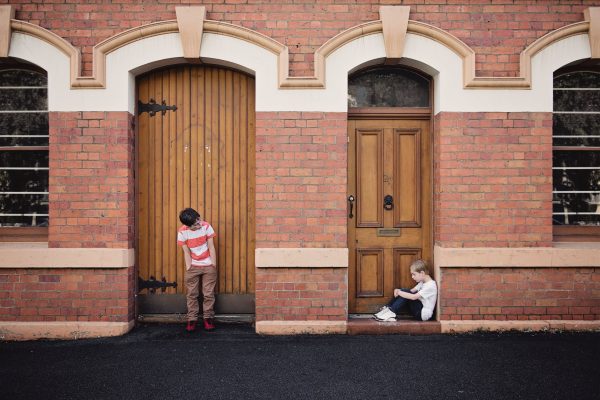Just like with adults, children get stressed too. This might seem like a strange concept, as what do children have to be stressed about? They have no work or bills to pay, no responsibilities or pressures, but while this is true, we forget that it is hard growing up and learning what your place is in the world.
From learning new skills and having new experiences to more specific pressures such as academic performance, separation anxiety or relationships, children often suffer in silence. This can have a significant negative impact on their health and development, so as parents, we need to learn to recognise when this is happening so that we can provide the support and advice that they need.
Stress is very common in children and most will experience anxiety at some point in their lives, so here is everything you need to know about recognising stress and how to help them deal with it healthily.
Signs of stress to look out for
It’s difficult to notice changes in your children if it happens slowly over time or they hide how they are feeling, but if they are exhibiting one or more of these signs, it’s important that you address it with them to see if they are okay and how you can help.
Your child may be stressed if you notice:
* Changes in their behaviour – this can be anything out of character that lasts for several weeks.
* Symptoms of worrying – biting nails, chewing their hair, or getting upset or anxious about things more than normal.
* Signs of aggression – they may be more irritable, angry or frustrated than normal, or take their emotions out on family members at home.
* Social withdrawal – your child may isolate themselves by avoiding family members, activities such as sleepovers, or not wanting to go to school.
* Regression – this is when a child reverts back to infantile behaviour as a way of dealing with stress. This can include using the potty, sucking their thumb, bed wetting, having tantrums or becoming clingy.
* Aches and pains – emotional stress can manifest physically, so pay attention to how often your children get headaches, stomach aches, chest pain, a rapid heart rate or fatigue.
* Sleeping problems – this can be either an inability to fall asleep, poor sleep or nightmares.
* Changes in their eating habits or weight – your child may eat more or less than usual which may lead to weight loss or weight gain.
* Academic problems – whether it is a lack of concentration or being disruptive, your child can exhibit signs of stress in school which will affect their performance.
How you can help your child deal with stress
If you notice that your child is exhibiting signs of stress, it’s important that you help them deal with it.
1. Don’t dismiss or laugh at their worries. What may seem trivial to us are big worries for our children, so take them seriously and provide them with lots of reassurance that they’ll be okay.
2. Normalise stress. Let your child know that stress is a normal part of life and that it is essential that we recognise it and deal with it.
3. Discuss healthy ways of dealing with stress. By engaging in a conversation with your child about stress, you’re allowing them to think about it for themselves and work out what is best for them. Do they think that physical activity can help? Do they need to relax more or try techniques such as breathing and muscle relaxation? Do they know what mindfulness is and why it is important?
4. Model healthy coping behaviours yourself. Children learn from their parents so it’s no good telling them what they should be doing and doing something different yourself. Actively try to commit to healthy coping methods yourself such as exercising and use it to teach your children valuable life skills for the future.
5. Limit screen time and monitor their use. Devices are windows to the world, so the last thing that you want is for your children to be exposed to potentially distressing information online. Limit screen time to two hours a day and keep an eye on their social activity to monitor any changes in behaviour.
6. Be mindful of the changes in your life. Anything can cause your children stress from you having another baby to your financial worries or your own trivial stresses. Be mindful of this, as children pick up on it, and try not to discuss family worries until the children are in bed.
It can be really difficult to notice if your child is stressed, especially if the changes are very subtle. However, it is essential that even if you can’t quite put your finger on it, that you address it and help them manage it.
Even if it isn’t a major issue to be stressed about (by your standards), by teaching your children to cope with stress, you are arming them with essential life skills that will lead to a much healthier and happier life.
At Schoolhouse Daycare, we enjoy learning, encouraging confidence and we love life! If you think your child would enjoy life at Schoolhouse, then please do not hesitate to arrange a visit.
Looking for more help and advice? See more from us here:
8 Ways to Help Your Children Protect Their Teeth
How to Choose the Best Educational Toys: the Ultimate Guide for Parents




